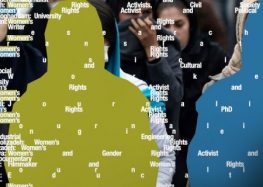Renewed Attempts to Isolate and Silence Women’s Rights Activists
 Detentions, Travel Bans, and Intimidation Target Activists
Detentions, Travel Bans, and Intimidation Target Activists
(27 October 2008) The Iranian government has substantially increased its persecution and prosecution of women’s rights activists in recent days. These actions come on the heels of a report by the UN Secretary General calling on Iran to end its repressive measures against women’s rights activists.
In a 20 October 2008 report, the Secretary General noted “an increasing crackdown in the past year on the women’s rights movement” and that “women’s rights activism is sometimes presented by the Iranian Government as being connected to external security threats to the country.” The report referred specifically to organizers of the “One Million Signatures Campaign [who] reportedly faced arrest and intimidation by authorities.”
During the past two weeks, security agents have targeted members of the One Million Signatures Campaign, which promotes gender equality within Iranian laws, with detentions, summonses, and travel bans.
The International Campaign for Human Rights in Iran urged the Iranian government to cease its unjustified and repressive measures against peaceful activists.
“The actions by Iranian authorities display a systematic and consistent effort to stifle women’s rights activists in Iran that has been condemned widely by the international community, including the recent UN Secretary General’s report,” Hadi Ghaemi, spokesperson for the International Campaign for Human Rights in Iran said.
On 26 October 2008, security agents prevented Sussan Tahmasebi, a member of the One Million Signatures Campaign, from leaving Iran to visit her family abroad and confiscated her passport. Security agents subsequently searched Tahmasebi’s home and seized her computer, CDs, books, writings, texts on peace-building, and other personal belongings. She has been ordered to appear in court within three days.
Tahmasebi told Change for Equality, the website of the One Million Signatures Campaign, “This is the fourth time that security officials have prevented me from traveling under different pretenses. Despite my repeated inquiries I was provided with no information on the reason for their action and the case on which I am being called to the Revolutionary Courts.”
Tahmasebi is among a number of women’s rights activists who have been banned from traveling abroad in recent months.
On Friday 17 October, Parastoo Alahyaari, another member of the One Million Signatures Campaign, was in Laleh Park in Tehran meeting with fellow activists, when security officers ordered their group to disperse. Alahyaari and others were ordered to submit identification cards after asking why they were being told to disperse. On 18 October, security agents searched her home and seized her laptop, CDs, books, picture albums and materials related to the One Million Signatures Campaign.
California State University graduate student Esha Momeini has been held in incommunicado detention in Evin Prison’s Section 209 since 15 October 2008. She was detained while conducting her thesis research on the women’s rights movement in Iran. The International Campaign for Human Rights in Iran expressed serious concerns for her health and safety. She was due to undergo a kidney stone operation when she was detained. There are fears of Momeini being ill-treated by Intelligence Ministry officers who run Section 209. She has not received any medical care and is being denied access to her lawyer and family.
“While forcibly infringing on the freedom of movement of peaceful women’s rights activists and attempting to intimidate others and stifle research, Iranian authorities are demonstrating their utter disregard for the United Nations and the human rights standards to which they are committed,” Ghaemi said.
The Campaign is appealing to the Iranian authorities to immediately release Momeini and return Tahmasebi’s passport. The Campaign urges the government to cooperate with United Nations agencies and international civil society groups that seek to assist Iran in abiding by its international human rights obligations.






